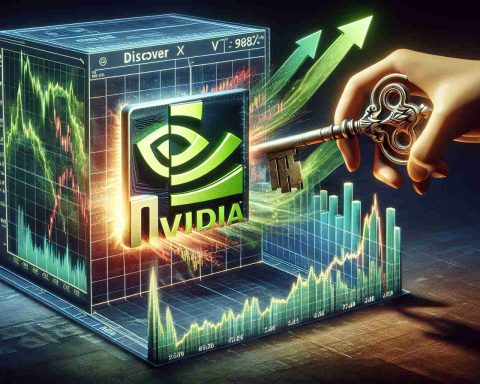In the race to dominate the AI chip industry, Nvidia, known for its powerful graphics processing units (GPUs), finds itself facing unexpected competition from Broadcom. While Nvidia has long held a commanding lead in AI accelerators, with a market share soaring between 80% and 95%, analysts are now turning their eyes to Broadcom’s strategic maneuvers.
Broadcom, a major supplier of semiconductors, has carved a niche with its application-specific integrated circuits (ASICs), chips designed for particular uses like AI workload acceleration. Commanding approximately 60% of the custom AI chip market, Broadcom owes its success to significant partnerships with large data center operators, which are suspected to include giants like Alphabet, Meta, and ByteDance.
Projections point to a surge in revenue for Broadcom’s custom AI chips, leaping from $12.2 billion in 2024 to somewhere between $60 billion and $90 billion by 2027—an annual growth rate between 70% and 95%. These numbers suggest that Broadcom is gearing up to capture more of the market, posing a formidable challenge to Nvidia.
Broadcom CEO Hock Tan recently fueled speculation by hinting at potential collaborations with two new large-scale clients by 2027. Analyst chatter suggests that Apple and OpenAI might be these mystery partners, indicating further expansion for Broadcom.
However, Nvidia’s stronghold in AI still benefits from its versatile GPU ecosystem, rich with support tools and libraries that custom ASICs lack. With comprehensive solutions that streamline AI development, Nvidia remains a formidable force as the industry evolves, leaving room for optimism among its shareholders. Meanwhile, Broadcom’s bold strategic moves are certainly one to watch in the unfolding semiconductor saga.
Broadcom’s Strategic Play: The Next Big Disruptor in AI Chips?
As the competition intensifies in the AI chip industry, Broadcom emerges as a surprising contender challenging Nvidia’s long-held dominance. Known primarily for its GPUs, Nvidia commands an impressive market share of 80% to 95% in AI accelerators. However, the landscape is rapidly changing as Broadcom makes strategic moves to bolster its position in this lucrative sector.
Broadcom has found its strength in developing application-specific integrated circuits (ASICs) tailored for AI workloads. Owning around 60% of the custom AI chip market, Broadcom attributes much of its success to its collaborations with major data center operators. Industry insiders speculate that these partners could include tech giants such as Alphabet, Meta, and ByteDance.
A Glance at Broadcom’s Projections
Broadcom’s future in AI chips looks remarkably promising. Revenue from its custom AI chips is expected to surge from $12.2 billion in 2024 to between $60 billion and $90 billion by 2027. This represents a striking annual growth rate of 70% to 95%. Such projections indicate that Broadcom is poised to capture a significant share of the market, presenting a substantial challenge to Nvidia.
Potential Collaborations and Market Influence
Broadcom CEO Hock Tan has hinted at potential collaborations with two new large-scale clients by 2027. Analysts speculate that Apple and OpenAI could be these partners, which would significantly enhance Broadcom’s market reach and influence in the AI domain.
Nvidia’s Continued Dominance
Despite Broadcom’s gains, Nvidia maintains a competitive edge with its versatile GPU ecosystem. Nvidia’s comprehensive suite of support tools and libraries facilitates streamlined AI development, a significant advantage over the more specialized ASICs. This ecosystem not only sustains Nvidia’s current market position but also fuels investor optimism about its future prospects.
Looking Ahead
Broadcom’s bold initiatives and strategic collaborations are pivotal in the shifting dynamics of the semiconductor industry. The company’s focus on custom ASICs for AI presents a compelling narrative in the ongoing saga. As Broadcom challenges the status quo, industry watchers will be keen to see how Nvidia adapts and evolves alongside this formidable competitor.
For more information on Broadcom’s developments, visit Broadcom’s official site and for Nvidia’s latest updates, check Nvidia’s official site.



















